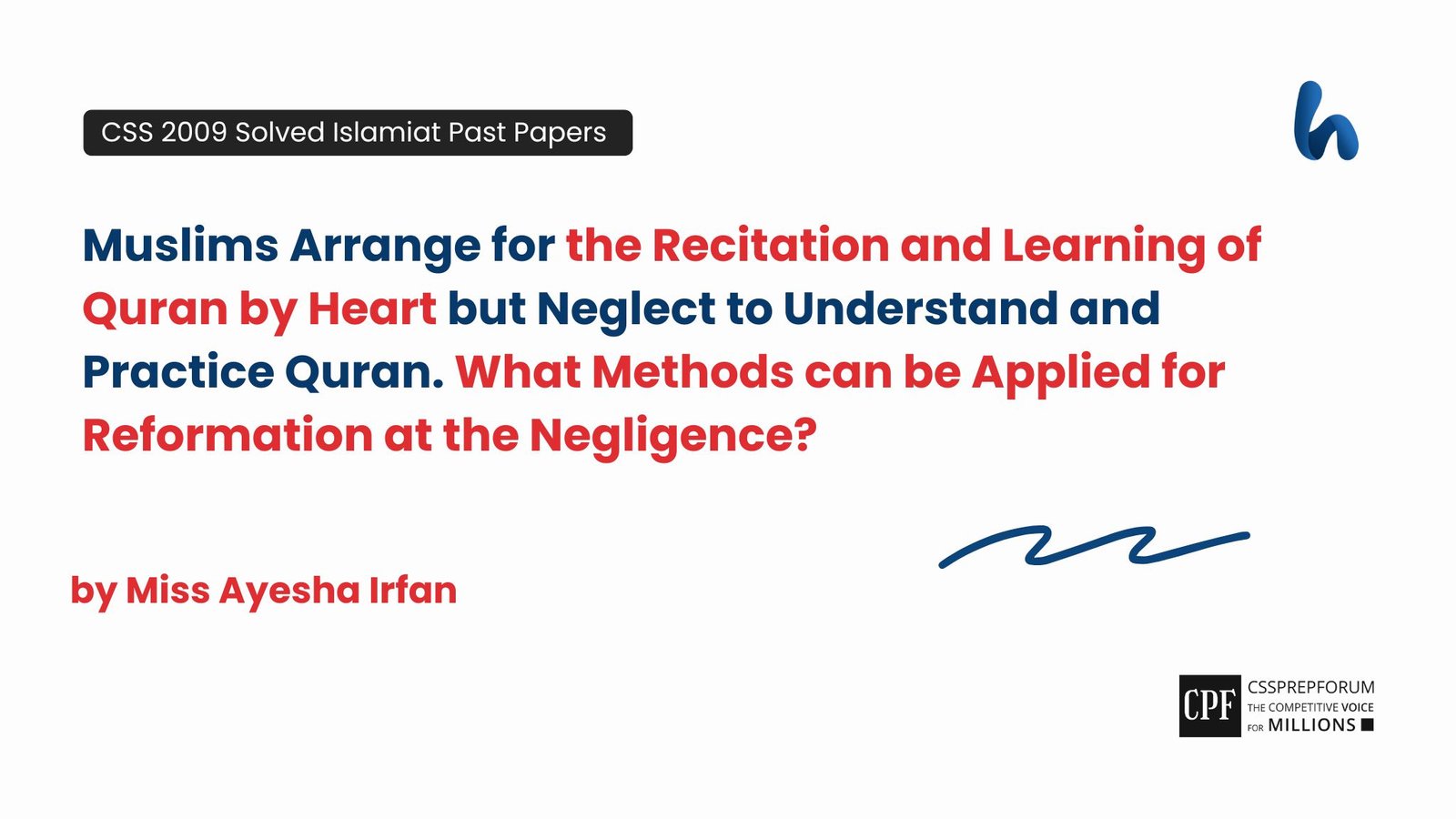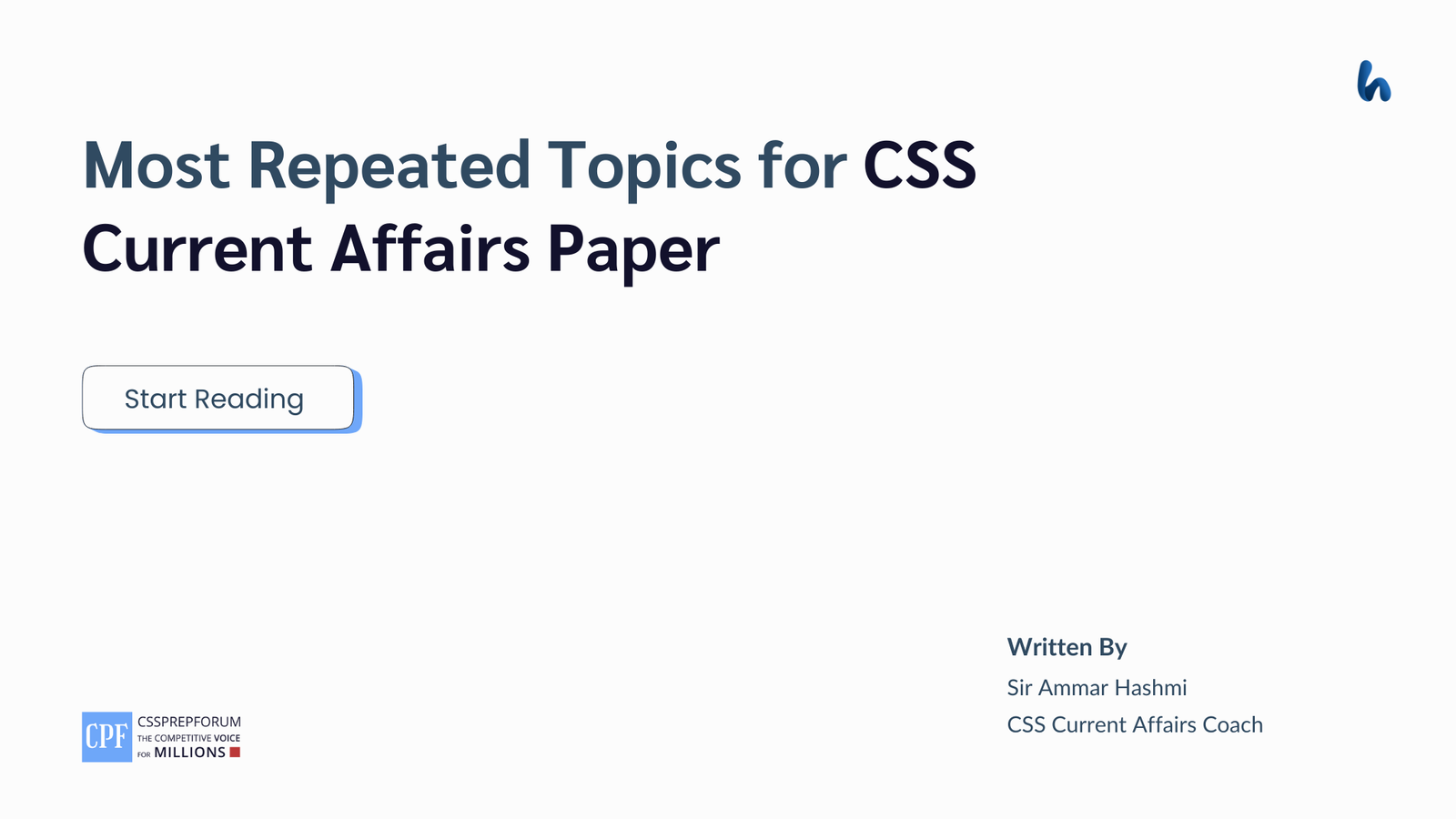Should Higher Education be Provided for the Selected Few? | Editorials by CSS & PMS Aspirants
The following article, “Should Higher Education be Provided for the Selected Few?”, is written by Iqra Habib, a student of Sir Syed Kazim Ali. Moreover, the article is written on the same pattern, taught by Sir to his students, scoring the highest marks in compulsory subjects for years. Sir Kazim has uploaded his students’ solved past paper questions so other thousands of aspirants can understand how to crack a topic or question, how to write relevantly, what coherence is, and how to include and connect ideas, opinions, and suggestions to score the maximum.

Higher education has been regarded as a gateway to an individual’s personal, social, and economic advancement. Indeed, in an era of rapid technological evolution and global interconnectedness, access to higher education is more crucial than ever. While some argue that it should be a privilege reserved for a select group based on merit and competition, the benefits of universal access to higher education far outweigh the limitations of exclusivity. Therefore, ensuring that higher education is accessible to all individuals upholds fundamental human rights, reduces social inequalities, cultivates an educated workforce, and drives economic growth, fostering a more inclusive and progressive society.

Why higher education should be universal
Moving forward, a universally accessible higher education system is essential for fostering a just and progressive society. Several compelling reasons support the argument that higher education should be available to all.
To begin with, higher education is a fundamental human right that should be accessible to all. In fact, the United Nations Universal Declaration of Human Rights (UDHR) explicitly supports this stance in Article 26, which asserts that higher education “shall be equally accessible to all based on merit.” This principle highlights the necessity of providing higher education opportunities regardless of socioeconomic background. Moreover, by ensuring universal access, societies demonstrate a commitment to fairness and justice, which allows individuals to develop their potential fully. And the ability to pursue higher education should not be dictated by privilege but rather by the willingness and ability to learn. Therefore, limiting access contradicts the values of equality and democracy, preventing capable individuals from contributing meaningfully to society.
Furthermore, a highly educated workforce is a critical driver of economic prosperity. According to the Organization for Economic Cooperation and Development (OECD), “Education and skills are essential for economic growth and innovation.” In knowledge-based economies, industries increasingly demand highly skilled workers who can adapt to new challenges and technological advancements. Additionally, countries that prioritize higher education accessibility experience faster economic growth; reduced unemployment rates; and higher standards of living. When restricted to a select few, education hinders economic progress by leaving vast reservoirs of untapped potential unutilized. Thus, a society that invests in widespread education reaps the benefits of a dynamic and competitive workforce that can drive sustainable economic development.
Similarly, higher education is crucial for uncovering and nurturing latent talents across diverse communities. To illustrate, a renowned psychologist Howard Gardner emphasizes that higher education should be about cultivating the full range of human talents, not just academic achievements, which means that an inclusive education system ensures that talent is identified and refined, irrespective of an individual’s initial background. In many instances, innovators and leaders emerge from unexpected places, demonstrating that intellectual potential is not confined to a privileged elite. If access is restricted, society risks overlooking individuals who can contribute significantly to scientific, artistic, and social advancements. Therefore, investing in universal higher education fosters an environment where innovation and creativity can flourish across all sectors.
Moreover, universal access to higher education is a powerful tool for addressing social inequalities. And the World Bank highlights that individuals from underprivileged backgrounds can see a 20 per cent increase in earnings with a higher education qualification. This statistic illustrates how education can serve as a bridge for upward mobility by enabling individuals to break free from cycles of poverty. On the other hand, by limiting access, societies reinforce existing disparities, preventing marginalized groups from accessing opportunities that could improve their circumstances. As a result, inclusive education policies ensure that talent and ambition, not socioeconomic status, determine success. Hence, expanding access to higher education is not only an investment in human capital but also a commitment to social justice and equity.
Additionally, diversity in higher education institutions enriches the learning experience for all students. To elaborate, the American Educational Research Association emphasizes that inclusive and diverse environments promote cultural understanding, innovation, and critical thinking. Indeed, exposure to peers from different socioeconomic and cultural backgrounds enhances collaboration, problem-solving, and adaptability – increasingly valuable skills in a globalized world. Conversely, restricting higher education to a select group leads to homogeneity, which limits perspectives and reduces the richness of discourse in academic settings. Thus, an inclusive higher education system cultivates an intellectually vibrant environment where students learn from diverse perspectives, preparing them to thrive in multicultural professional landscapes.
Further, the rapid advancement of technology necessitates an inclusive education system. In the digital age, the need for lifelong learning has never been greater. The workforce of the future demands individuals who can continuously acquire and apply new skills. Evidently, Microsoft CEO Satya Nadella states, “The future of work is about skills, not jobs. And the most important skill is the ability to learn.” As technology evolves, the skills required in various industries also change, necessitating an adaptable and educated workforce. Thus, universal access to higher education ensures that all individuals, regardless of background, have the knowledge to navigate an ever-changing job market. So, an inclusive system fosters innovation, ensuring societies remain competitive in the global economy.
Last but not least, higher education provides students with essential skills and guidance necessary for their future careers. A UNESCO report highlights, “Higher education is the key to unlocking the potential of individuals, communities, and societies.” Besides job preparation, it fosters personal growth, civic engagement, and lifelong learning. More importantly, when education is universally accessible, it thus empowers individuals to make informed decisions; contribute meaningfully to society; and participate actively in democratic processes.
Higher Education should not be Universal
On the contrary, opponents argue that limiting higher education to a select few ensures quality and maintains academic excellence. They contend that a merit-based system fosters competition, encouraging students to strive for excellence. While merit is an important criterion, an overly rigid focus on traditional metrics, such as standardized test scores and grades, can exclude individuals with unconventional talents. For instance, many successful innovators, including Steve Jobs, thrived despite lacking formal higher education credentials. Therefore, a flexible and inclusive education system recognizes diverse forms of intelligence and potential, allowing individuals to excel in different domains.
Similarly, another argument against universal higher education is that exclusivity encourages competition, which is believed to drive excellence. Critics suggest that an open-access system may lead to overcrowding and declining academic standards. However, institutions like Stanford University’s d.school have demonstrated that diversity and collaboration foster innovation rather than dilute excellence. When students from diverse backgrounds and disciplines collaborate, they bring unique perspectives and ideas, which lead to groundbreaking solutions. Thus, a rigidly selective system risks stifling creativity and reducing the collective intellectual capital available to society.
In conclusion, higher education should not be a privilege reserved for a select few but a fundamental right accessible to all. Truly, a universally accessible system promotes economic growth; reduces social inequalities; nurtures hidden talents; and enhances cultural diversity. While concerns about quality and competition are valid, they can be addressed through innovative educational models that emphasize collaboration and lifelong learning. Ultimately, investing in inclusive higher education is not just an investment in individuals but in the progress of society. So, by ensuring accessibility for all, humans can create a future where knowledge, opportunity, and innovation thrive, shaping a more just and prosperous world.

CSS Solved Past Papers’ Essays
Looking for the last ten years of CSS and PMS Solved Essays and want to know how Sir Kazim’s students write and score the highest marks in the essays’ papers? Then, click on the CSS Solved Essays to start reading them.
CSS Solved Essays
CSS Solved General Science & Ability Past Papers
Want to read the last ten years’ General Science & Ability Solved Past Papers to learn how to attempt them and to score high? Let’s click on the link below to read them all freely. All past papers have been solved by Miss Iqra Ali & Dr Nishat Baloch, Pakistan’s top CSS GSA coach having the highest score of their students. General Science & Ability Solved Past Papers












